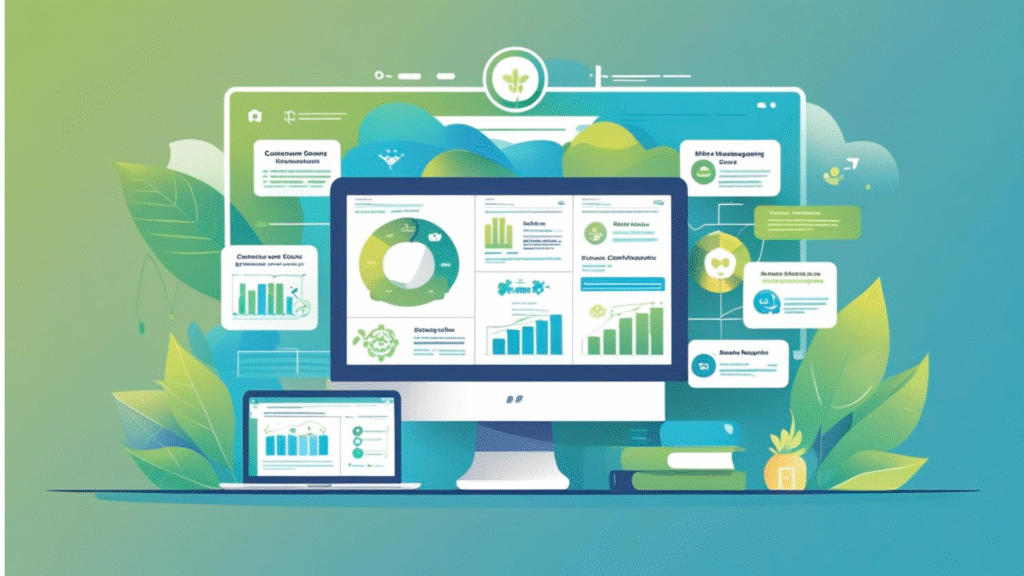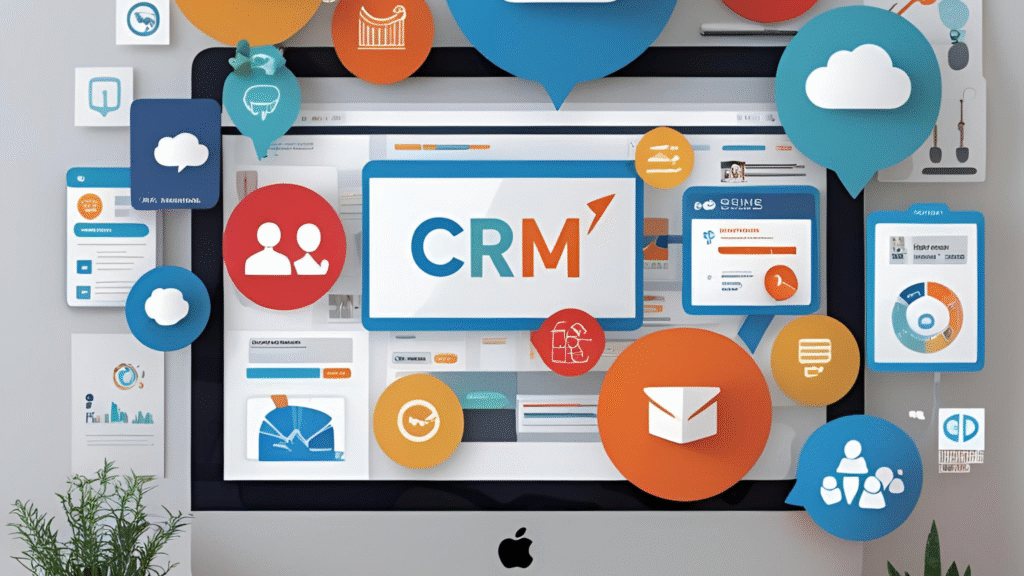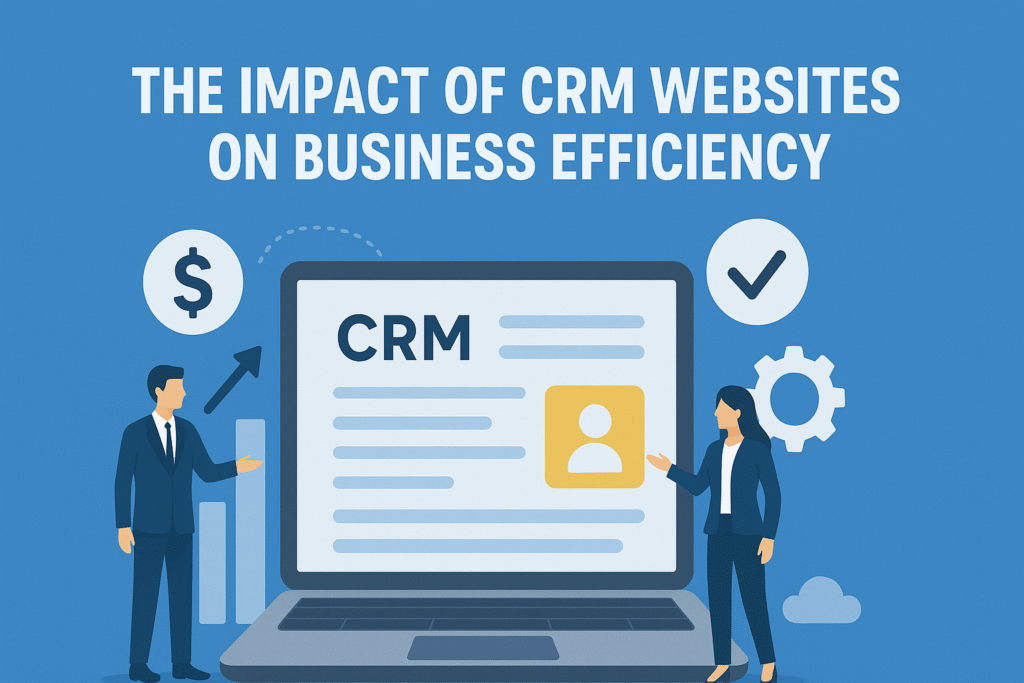Why Do You Need a Good CRM Website?
In the digital-first era, businesses must evolve beyond manual spreadsheets, siloed communications, and disconnected departments. To stay competitive, every business—from startups to enterprises—needs to put the customer at the heart of its strategy. This is where CRM websites come into play. At the core of these websites is the customer relationship platform—a tool that not only manages customer interactions but also drives growth, enhances efficiency, and fuels customer loyalty.
A good CRM Website is more than just a digital address book. It’s a smart, integrated system that connects marketing, sales, service, and support—empowering your team to deliver personalized experiences at scale. In this article, we’ll explore why a good CRM website is essential and how it can revolutionize your business from the inside out.
What Is a Customer Relationship Platform?
A customer relationship platform is a comprehensive software solution designed to manage, track, and improve your company’s interactions with leads and customers. It provides a centralized hub for storing customer data, communication history, support requests, and purchasing behavior. This platform automates repetitive tasks, enhances visibility across departments, and enables data-driven decision-making.
When integrated into CRM websites, this platform becomes accessible anytime and anywhere. Whether it’s a cloud-based system like HubSpot or Salesforce or a custom-built CRM solution tailored to a niche market, the goal remains the same: to improve the way your business engages with its customers.
The Evolution of CRM Websites
Historically, customer data was scattered across notebooks, emails, and spreadsheets. As businesses scaled, managing relationships manually became inefficient, inconsistent, and prone to error. The introduction of desktop CRMs helped to centralize information, but access was limited, updates were clunky, and collaboration was difficult.
Enter CRM websites—modern, cloud-based solutions that offer real-time access, automation, integrations, and intelligent analytics. Today’s customer relationship platforms are built for speed, scalability, and flexibility, making them essential for organizations navigating competitive markets.
1. Centralized Data for Better Customer Understanding
One of the primary reasons you need a good CRM website is centralized data management. It allows you to collect, store, and organize information about your customers in one place. From initial contact to ongoing support, every interaction is recorded, giving you a full 360-degree view of the customer journey.
Benefits:
Understand customer needs and behaviors
Track communication history across departments
Identify trends and buying patterns
Create personalized experiences based on real-time insights
Having this information at your fingertips through a customer relationship platform enhances both strategy and service.
2. Automation That Saves Time and Boosts Efficiency
Time is one of the most valuable resources in any business. A strong CRM website automates repetitive tasks like email follow-ups, meeting scheduling, lead assignments, ticket routing, and customer segmentation. This automation reduces manual errors and frees your team to focus on high-value tasks.
Benefits:
Shorten the sales cycle
Improve lead nurturing with automated drip campaigns
Respond to customer queries faster
Eliminate administrative burdens on employees
With less time spent on routine work, your business becomes more agile and responsive.
3. Enhanced Collaboration Across Departments
Without a unified system, different departments often operate in silos. Marketing may not know what sales are doing, and support might be unaware of a customer’s purchase history. A CRM website bridges these gaps by enabling collaboration across departments on a shared platform.
Benefits:
Align marketing, sales, and service teams
Share notes, updates, and tasks in real-time
Coordinate customer communication seamlessly
Provide consistent and cohesive experiences
The customer relationship platform ensures everyone has access to the same information, improving both internal communication and customer satisfaction.
4. Improved Sales Performance and Forecasting
Sales teams thrive on efficiency and insight. CRM websites offer detailed pipelines, opportunity tracking, and performance dashboards. Sales representatives can identify hot leads, prioritize opportunities, and monitor progress at every stage of the buyer’s journey.
Benefits:
Increase lead conversion rates
Identify bottlenecks in the sales process
Predict future revenue with sales forecasts
Focus efforts on the most profitable leads
A good customer relationship platform empowers your sales team to close more deals, faster.
5. Smarter Marketing Campaigns
CRM websites are invaluable to marketing departments. They enable precise segmentation, personalized content delivery, campaign performance tracking, and automated lead scoring. With these tools, marketers can move from mass marketing to targeted messaging.
Benefits:
Segment audiences based on behavior or demographics
Track campaign ROI in real-time
Send tailored emails to increase engagement
Nurture leads until they’re ready for sales
Your CRM acts as the marketing command center, ensuring that every campaign is timely, relevant, and effective.
6. Exceptional Customer Service and Support
Today’s customers expect fast, informed, and personalized support. A CRM website ensures that support teams have access to detailed customer profiles, past interactions, and product/service usage data. This allows agents to resolve issues quickly and efficiently.
Benefits:
Reduce resolution time
Improve first-contact resolution rates
Build trust with proactive support
Use chatbots and automation for 24/7 assistance
When powered by a customer relationship platform, your support team becomes a key driver of loyalty and retention
7. Data-Driven Decision Making
A good CRM website doesn’t just store data—it turns it into actionable insights. Real-time analytics and customizable reports allow you to track performance, monitor KPIs, and make informed decisions.
Benefits:
Identify top-performing channels and sales reps
Detect emerging trends and customer behavior shifts
Optimize resource allocation
Improve long-term strategic planning
With a clear picture of what’s working (and what’s not), you can pivot quickly and stay ahead of the competition.
8. Scalability and Customization
Every business has different needs. CRM websites can be customized and scaled to grow with your company. Whether you need integrations with third-party tools, industry-specific features, or multilingual support, a good customer relationship platform can adapt.
Benefits:
Add new users or features as your business grows
Integrate with ERP, email, accounting, and e-commerce systems
Customize dashboards, fields, and workflows
Adjust security and permission settings by role
This flexibility ensures that your CRM investment supports your business for the long term.
9. Cost-Effective Growth and ROI
While a CRM website does involve an initial investment, the return it delivers far outweighs the cost. By reducing inefficiencies, improving customer satisfaction, and increasing conversion rates, CRM websites drive measurable results.
Benefits:
Lower customer acquisition costs
Increase customer lifetime value
Improve employee productivity
Reduce churn and improve retention
Many businesses see a return of $8–$10 for every $1 spent on CRM—making it one of the most cost-effective business tools available
10. Competitive Advantage in a Digital World
In today’s crowded marketplace, customer experience is often the key differentiator. Companies that leverage a strong customer relationship platform can offer personalized, seamless, and proactive service that sets them apart.
Benefits:
Stand out with superior service and engagement
Build stronger relationships and brand loyalty
Respond faster to market changes and trends
Deliver consistent omni-channel experiences
A good CRM website is not just a tool—it’s a competitive strategy.
Signs You Need a Better CRM Website
Not sure if your current CRM system is working? Here are common signs it’s time for an upgrade:
You’re still using spreadsheets to manage leads
Teams often complain about duplicate work
You lack visibility into customer touchpoints
Reports take too long to compile
Customer service is inconsistent
You struggle with integrating your tools
If any of these sound familiar, investing in a robust customer relationship platform through a modern CRM website can transform your business.
Conclusion: Your Future Depends on the Right CRM Website
In today’s digital economy, businesses that thrive are those that understand, serve, and engage their customers better than the rest. A well-designed CRM website, powered by a strong customer relationship platform, is the key to unlocking this potential.
From streamlining operations to driving growth, CRM websites offer the tools needed to scale efficiently, make informed decisions, and deliver exceptional customer experiences. No matter your industry or company size, investing in a good CRM website is not just a smart move—it’s a business necessity.


